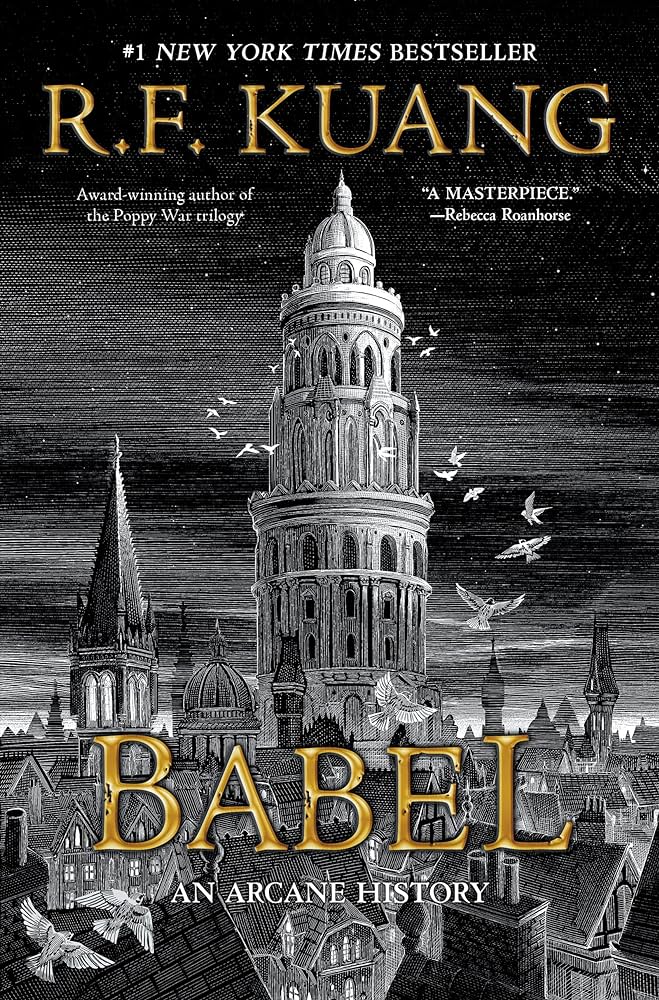The Fallible Translator
Review of: Babel, R.F. Kuang

I wanted to love Babel, and at times I really did. The more subtle Kuang is, the more refined her prose gets. Didactic history lessons dilute her message, a vitally important one. Still, her readers learn more about collective action, even if it is at times less than elegant. While this reads as an indictment on dark academia by the end, ironically her writing feels stronger in the less-plotty first half, where she crafts characters in a lush historical world, and has space to muse about translation.
She shines the most in passages about language and the beauty of it:
“Translation involves a spatial dimension—a literal transportation of texts across conquered territory, words delivered like spices from an alien land. Word mean something quite different when they journey from the palaces of Rome to the tea-rooms of today’s Britain. […] So we must proceed from the starting assumption that distortion is inevitable. The question is how to distort with deliberation” (106).
It reads as the fundamental questions Kuang as translator, when she isn’t working as novelist, might tackle. Every literature major, linguist, student of any language can feel the resonance of these words, the precarious malleability of language.
Where the prose fell apart for me the most was with the footnotes. I find them irksome, given that they largely seem to have no coherent form. I appreciate the addition of Chinese characters, and found those to be worthy additions. But many of them read as afterthoughts to her text, little repairs that she needed to make, and that should have been subsumed into the plot or dropped altogether. They bloat her text at points, like the random interludes lacking all grace in the narrative. This is my issue with current multiple POV trends: it often is the mark of an author unskilled enough to tell a story through a single lens, or who can’t imagine something as fundamental to the novel as free indirect discourse.
If Ramy and Letty’s backstories are so important (and Letty’s is, which is why we do actually get it earlier in the novel, making her interlude feel redundant and stunted), then they should be part of the text itself proper, wound through like Kuang so artfully wends through her historical strands. That attention to historical detail is admirable, though again Kuang’s historical footnotes can’t help over-moralizing at times.
There is a moment where one character complains about an English translator's multitude of notes, distorting any clean reading of a text. Are we to think that this is the mantel she is taking up, even as it seems she works to condemn this kind of translating? Had she cultivated her authorial voice in the footnotes more consistently, removed traces of the diegetic narrative and focused on a “voice of God,” (apt, this is “Babel,” after all) in these notes, the consistency of that voice would have been adequately traced through the narrative like a guiding scholar. If anything, her historical notes are lessened in affect by the diegetic material she adds into other notes, such that the rich history underpinning her text runs parallel to the level of narrative, trivializing the real actors in history.
If fiction is Kuang’s lens for translating the merits of collective action and the nuances that accompany true revolution, then she offers herself up as the fallible translator who we might critique in style. Her meaning comes across, but we can’t help but notice she might have translated it to us with a little bit more deftness.